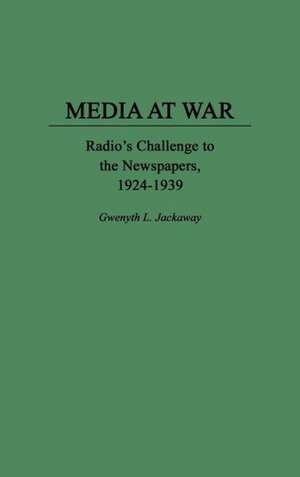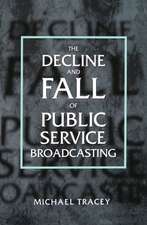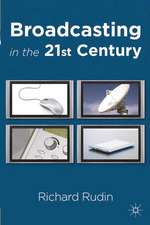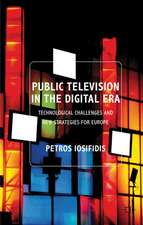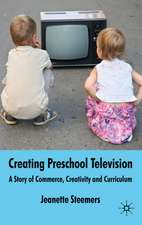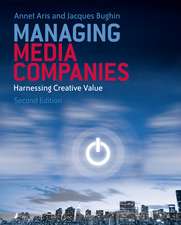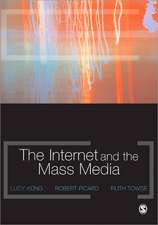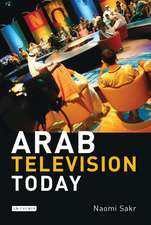Media at War: Radio's Challenge to the Newspapers, 1924-1939
Autor Gwenyth L. Jackawayen Limba Engleză Hardback – 19 noi 1995 – vârsta până la 17 ani
Preț: 363.29 lei
Preț vechi: 478.59 lei
-24% Nou
Puncte Express: 545
Preț estimativ în valută:
69.51€ • 72.77$ • 57.52£
69.51€ • 72.77$ • 57.52£
Carte tipărită la comandă
Livrare economică 05-19 aprilie
Preluare comenzi: 021 569.72.76
Specificații
ISBN-13: 9780275952570
ISBN-10: 0275952576
Pagini: 184
Dimensiuni: 156 x 235 x 19 mm
Greutate: 0.42 kg
Ediția:New.
Editura: Bloomsbury Publishing
Colecția Praeger
Locul publicării:New York, United States
ISBN-10: 0275952576
Pagini: 184
Dimensiuni: 156 x 235 x 19 mm
Greutate: 0.42 kg
Ediția:New.
Editura: Bloomsbury Publishing
Colecția Praeger
Locul publicării:New York, United States
Notă biografică
GWENYTH L. JACKAWAY is an Assistant Professor of Communications at Fordham University, New York, where she teaches courses in media history, mass culture, and research methods.
Cuprins
Media Wars and Resistance to New TechnologiesThe Life Cycle of a Media War: The Three Stages of the Press-Radio WarRadio's Threat to the Institutional Identity of the PressRadio's Threat to the Institutional Structure of the PressRadio's Threat to the Institutional Function of the PressEpilogueSelected BibliographyIndex
Recenzii
Media at War is a case study of the period from 1924, the year in which the airways first reposted election returns, through 1939, the year that the Associated Press finally lifted its ban on providing news briefs to radio. During these years most newspapers attempted to block the development of broadcast journalism. At stake was the power to control news distribution--the power to shape public opinion and set the national political agenda.
In her deeply researched 1995 book, Media at War: Radio's Challenge to the Newspapers, 1924-1939, scholar Gwenyth L. Jackaway charts a similar set of complaints leveled by newspapers against the upstart medium of radio in the 1920s and 1930s.
In her deeply researched 1995 book, Media at War: Radio's Challenge to the Newspapers, 1924-1939, scholar Gwenyth L. Jackaway charts a similar set of complaints leveled by newspapers against the upstart medium of radio in the 1920s and 1930s.
